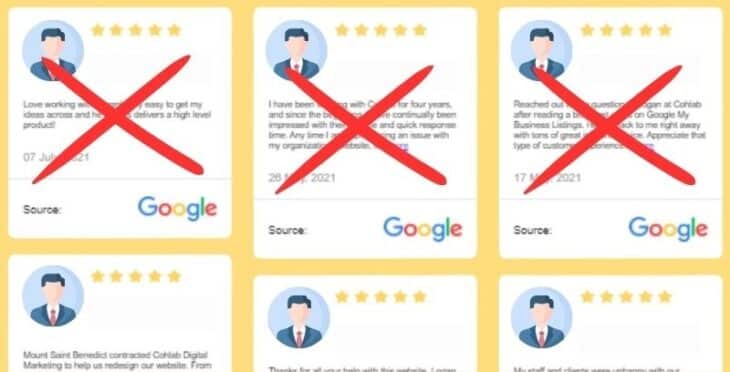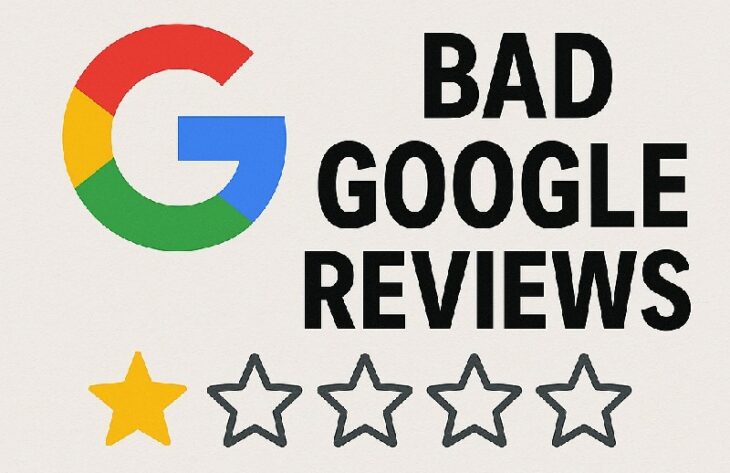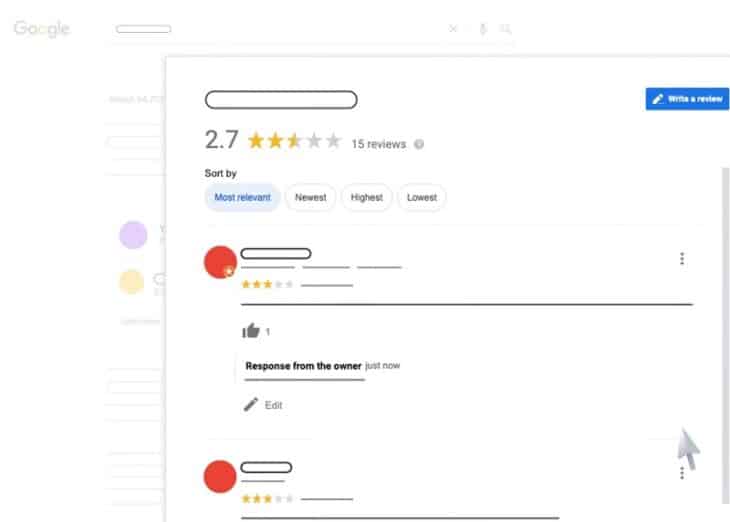Running a business demands focus, consistency, and a strong relationship with your customers. Every satisfied client adds to your success. Every positive interaction helps build trust. But one negative Google review can spark concern, raise questions, and even cost future business. Reviews have power. That is why review removals have become a hot topic among business owners.
Many believe that any review can disappear with the right complaint. Others assume that bad reviews mean the end of a reputation. Both ideas are wrong. Misinformation has spread fast, and the truth often gets lost.
To take control of your online presence, you need clear facts. You need to know how Google reviews really work and what options exist when things go wrong.
Let’s break down the top 5 myths about Google review removals and what you really need to know.
Myth #1: You Can Delete Any Review You Do Not Like

The Truth: Google does not allow review removal based on personal opinion
Many business owners believe they can delete any review they find unfair or upsetting. That belief leads to frustration. Google does not remove reviews just because they contain negative feedback or harsh words. A review that feels wrong or unfair may still follow all of Google’s guidelines.
Google only allows removal if a review clearly violates its content policies. That includes the following types:
Violations That May Qualify for Removal
- Fake reviews posted by users who never interacted with your business
- Spam content that contains irrelevant promotions or repeated posts
- Hate speech or offensive language that targets any group or individual
- Irrelevant reviews that mention services or events unrelated to your business
- Conflicts of interest such as reviews posted by ex-employees, competitors, or others with a personal agenda
A customer who received cold coffee might leave a harsh review. If the experience reflects what they felt at that time, Google will consider it valid. Business owners cannot erase that opinion. Instead of removal, the best approach is a professional response that acknowledges the concern and invites direct contact.
Why Your Response Matters More Than Deletion
A 2023 survey by BrightLocal showed that 98 percent of consumers rely on online reviews during purchase decisions. The same research revealed that people trust businesses that respond with calm, clear messages. A negative review alone will not destroy trust—but silence or an angry reply might.
Imagine this:
A bakery receives a review claiming, “Rude staff, never going back.”
Instead of ignoring it, the owner replies:
“We are sorry to hear about your visit. We aim to treat everyone with care. Please contact us so we can learn more and address the issue.”
That type of response signals professionalism. It protects your reputation, even if the review stays visible.
Myth #2: Bad Reviews Mean Your Business Is Doomed

The Truth: One or two bad reviews won’t sink your business.
Even the best businesses get the occasional bad review. It’s normal.
What matters more is your overall average and how fresh your reviews are. A Harvard Business Review study found that businesses with a 4.2 to 4.5-star average perform better than those with perfect 5.0 ratings. People trust a mix. It feels more real.
That said, if you’re getting fake or targeted reviews, that’s different. A wave of 1-star spam can hurt your search ranking, booking rate, and trust. That’s when you should take action.
One café owner I talked to had five fake reviews hit in two days after a social media misunderstanding. His average dropped from 4.8 to 3.9, and regulars started asking what was going on. After removing the spammy ones, he bounced back fast.
Myth #3: Google Reviews Are Set in Stone
The Truth: Reviews can be removed—but only when clear rules are broken
Many business owners believe Google reviews are permanent. That is false. Google does allow removals, but only for specific violations. You cannot delete reviews based on tone or opinion. You can act if the content breaks Google’s review policies.
A review qualifies for removal if it:
- Comes from someone who never visited your business
- Includes insults, threats, or offensive language
- Was posted by a fake or automated account
- Is copied and pasted across different listings
- Reveals private information like names, phone numbers, or emails
To start the removal process, go to your Google Business Profile. Find the review, click the three dots, and select Flag as inappropriate. For tougher cases, use the Google Business Help form.
Decisions usually arrive in 7 to 14 business days. Delays can happen during high volume periods, but you can follow up through the support system.
Google does not remove every complaint—but it does protect businesses from abuse. Use the tools available and document everything clearly.
If you’re overwhelmed, a remove Google review service such as guaranteedremovals.com can help handle the process and fight on your behalf. These companies deal with removals every day and know how to get results.
Myth #4: You Should Ignore Bad Reviews to Avoid Drama

The Truth: Silence creates doubt—responses build trust
Some business owners believe that replying to negative reviews will “stir the pot” or bring more attention to the complaint. That belief leads to missed opportunities. Most people do not expect perfection. They look for honesty, responsibility, and effort. Your response plays a bigger role than the review itself.
Public replies serve two audiences. One is the original reviewer. The other is every potential customer who reads your page later. A calm, respectful reply shows that you take feedback seriously and act with professionalism.
Here is a helpful example:
“Thank you for your feedback. We are sorry to hear about your experience. Please contact us at [your email] so we can understand what went wrong and try to make it right.”
That response avoids blame, invites dialogue, and signals care. You are not accepting fault. You are taking ownership of how your business handles concerns.
Responses Can Influence Buying Decisions
A 2023 BrightLocal study revealed that 89 percent of consumers read business responses before deciding where to shop. Ignoring complaints leaves a blank space. People assume you do not care—or worse, that the complaint is accurate.
One wedding planner received a brutal one-star review filled with personal attacks and false claims. Instead of staying quiet, she wrote a brief, professional reply and invited private contact. A few weeks later, a new client mentioned that her calm response to that review sealed the deal.
Myth #5: All Review Removal Services Are a Scam
The Truth: Some are shady—but not all.
There are scammy companies that promise instant results or “guaranteed deletion” of any review. Be careful. Those are red flags.
But real, legitimate review removal services exist. They work within Google’s rules, write strong appeals, and push for fair removals. Some even offer results-based pricing, meaning you only pay if the review gets removed.
Good companies will:
- Be upfront about timelines
- Ask questions about your business
- Give real examples of past success
- Never post fake reviews to balance out bad ones
If someone promises to “clean your entire profile overnight,” run the other way.
One local spa used a trusted removal service after a group of trolls posted 1-star reviews. Within three weeks, the fake reviews were gone, and they had a strategy in place to prevent it from happening again.
What You Can Do Today
Want to protect your business from unfair reviews? Start with these simple steps:
- Respond to every review—good or bad
- Ask happy customers to leave real reviews often
- Flag fake reviews the moment they appear
- Use review management tools to track and respond faster
- Hire a removal service if you feel overwhelmed or stuck
Final Thoughts
Don’t let myths stop you from managing your online reputation. You can remove fake reviews. You should respond to bad ones. And your customers do care about what they read.
A few one-stars won’t ruin your business. But inaction might.
Stay alert. Stay calm. And protect the great work you’ve built. You’ve earned it.


